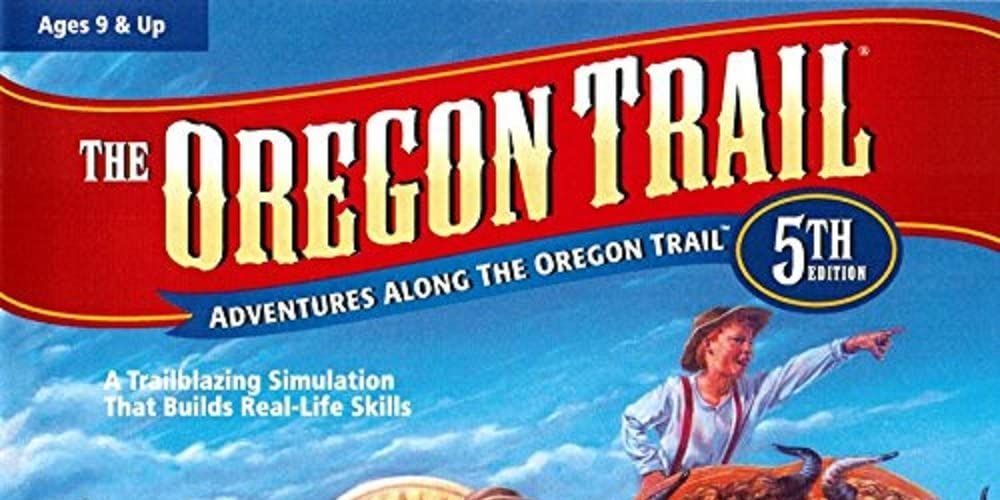

They are also more cost-effective therefore, they are a popular option. Especially when we talk about long-beds, they allow enough space between the trailer and the cab that even when the vehicle makes a sharp turn, the two parts will not come into contact with each other. This type of hitch does not need to be adjusted after it has been installed. The first is a fixed hitch, which is available and feasible for long beds (8 feet). Referring to the chart, there are three types of hitches.
#The oregon trail 5th edition weigtht limit how to
So it is better to tow less whenever you drive on wet roads because safety always comes first! How to Choose The Best Hitch For Towing a 5th Wheel The added weight is not of much help either. As there is less friction between the road and the tires, controlling the vehicle will be as hard as it can get. Of course, wet roads take a toll on your towing capacity as well. Although if that isn't the case, then definitely opt for a diesel engine as it produces more torque. So if you don't have a difficult terrain to drive on, a gas engine can work just fine too. Nowadays, even gas engines have become quite powerful and capable of pulling great loads. So, consider what you will be using your truck for. Torque can be viewed as the strength of the truck. However, it is also important to ask yourself whether you need that torque. There's no doubt that diesel engines are quite powerful and are capable of producing more torque. When we look at this question in terms of power, the apparent answer for it is diesel. This is yet another important question that needs to be asked. Dealing With a Large Bed On a Daily Basis Can Be a Bit Tricky Should I Opt For Gas or Diesel When it Comes to Towing?.It Also Has More Turning Clearance, So it Has Plenty of Room To Make Sharp Turns Cons.A Long Bed Can Pull Heavier Loads and Carry More Than a Short Bed.Naturally, a long bed can pull heavier loads, and they also have more clearance for turning than the short-bed. A long bed usually measures 7-8 feet in total. Long bed towing, on the other hand, is much more preferred by those who partake in commercial work or those that need to move bulk materials. There is Also Reduced Tuning Clearance For Vehicles That Are 5 Feet or Under That Mark.The Size Of the Bed Makes the Towing Process a Little Less Convenient.They Are Often Built With a Cab That is Spacious Cons.They Are Easier To Drive On a Daily Basis as Well and Are Usually Used For Daily Driving.These Trucks Are Easier To Maneuver, and Parking Them is Also Easier When They Are Not Attached To a Trailer.They can carry a considerable amount of weight. Despite all this, they are quite strong and versatile. This makes them compact and does not make parking a difficult task. This is less than your average-sized bed. Short-bed towing trucks are perhaps the most popular kind. To shine a little more light on the topic of towing beds, here's a small comparison of the two. Both have their own upsides and downsides. There are two types of beds for towing short and long.

One aspect that you need to consider while making a decision about 5th wheel towing is beds. The load capacity of your unit is designated by weight, not by volume, so you cannot necessarily use all available space when loading your unit.Short-Bed vs. A label identifying the unloaded vehicle weight of the actual unit and the cargo carrying capacity is applied to every Forest River RV prior to leaving our facilities. **Estimated Average based on standard build optional equipment.Įach Forest River RV is weighed at the manufacturing facility prior to shipping. Available CCC should accommodate fresh potable water (8.3 lbs per gallon).īefore filling the fresh water tank, empty the black and gray tanks to provide for more cargo capacity. *Estimated Average based on standard build optional equipment.ĬCC (Cargo Carrying Capacity)** - is the amount of weight available for fresh potable water, cargo, additional optional equipment and accessories.ĬCC is equal to GVWR minus UVW. The UVW does not include cargo, fresh potable water, additional optional equipment or dealer installed accessories. It includes all weight at the unit’s axle(s) and tongue or pin and LP Gas. UVW (Unloaded Vehicle Weight)*- is the typical weight of the unit as manufactured at the factory. GAWR (Gross Axle Weight Rating) – is the maximum permissible weight, including cargo, fluids, optional equipment and accessories that can be safely supported by a combination of all axles.


 0 kommentar(er)
0 kommentar(er)
